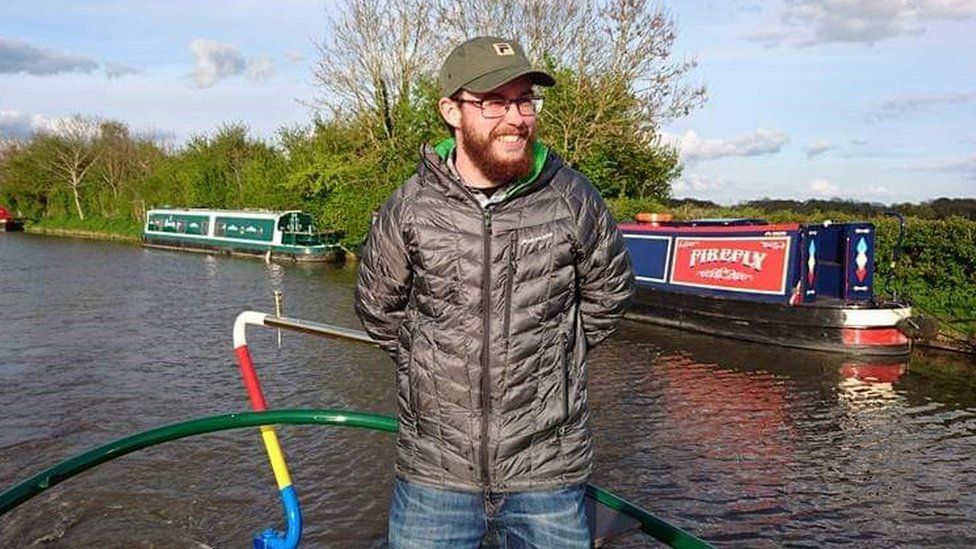Transgender men, such as Laurie, are not automatically contacted for potentially life-saving smear tests.

image copyrightLaurence Hodierne
Many dread being invited for their cervical smear test – but Laurie Hodierne found it exhausting to have to keep asking for appointments, and trying to chase up the result.
He is one of a number of transgender men who still have a cervix but are no longer registered as female at their GP surgery. Laurie was re-registered as male without requesting it, he says.
And this means he could miss out on potentially life-saving cervical smear tests because he is not automatically called up for screenings.
As a doctor, Laurie worries others who might be less able to navigate the health system will simply give up trying to get their smear test.
“I understand how the systems work and the language – and despite all of that I find it exhausting,” he says.
“You keep coming up against a brick wall.
“It’s a healthcare inequality in the sense that you aren’t able to get access to the screening programme in the same way.
“It also puts a lot of extra work on to the GPs, who are already pretty stretched.”

image copyrightLaurence Hodierne
NHS patients registered as female are invited to a cervical-cancer screening every three years between the ages of 25 and 50, and then every five years until they are 65.
But anyone who has a cervix can develop cervical cancer. The disease often has no symptoms in its early stages and can be fatal.
Seb, 28, remained registered as female at his GP surgery when he transitioned and so was still called to receive his smear test.
His partner had her test at the same surgery a few days before. She told the nurse Seb was transgender, and the nurse did some extra research before he came in.
“It wasn’t as terrifying as I was expecting,” he says.
“I was so nervous in the minutes before – and just before, it was a sense of calm.
“The nurse who handled it was a major contributing factor – she was so kind and seemed to do all the right things.”
But this experience was unusual among his trans friends, he says.
“It’s hard for some people, who are misgendered or ignored – you hear horror stories from lots of people,” Seb says.
And he would like to see more specialist training.
The current opt-in system means “you are putting the burden of health care on the person themselves, on top of everything else”, Dr Alison Berner, a registrar at the Tavistock Gender Identity Clinic, in London, says.
In 2019, she interviewed 137 transgender and non-binary people linked to the clinic.
Of the half who were eligible for a smear test, more than 40% said they had never been screened.
Many had missed appointments because they were fearful about disclosing their gender identity and of how others might react.
Some said they had found it difficult enough being accepted as male by their GP surgery – or the idea of cervical screening had never been mentioned.

image copyrightSeb
Half the participants said they had too little information about the process.
And a similar proportion wanted the option of a home-testing kit, something the NHS has been trialling, and which Jo’s Cervical Cancer Trust says would be an “incredibly valuable option” for this group.
“The sample taker and reception staff have a really important role in creating a safe and supportive environment for trans men and/or non-binary people with a cervix,” says Rebecca Shoosmith, acting chief executive of the charity, which worked with Dr Berner on the study.
“This includes being aware of barriers such as dysphoria, and identifying ways to engage patients, especially those registered as male and so not routinely invited to screening.”
Providers of NHS screening services are required to make “reasonable adjustments” to ensure they are accessible to everyone eligible.
An NHS official said: “Cervical screening tests save lives, with the NHS conducting millions of them each year, and those who would medically benefit from such screening should access it.”
The Department of Health said it “urged people in the LGBT [lesbian, gay bisexual, transgender] communities to contact their GP to have their cervical screening appointment, if they have not already received an invitation”.